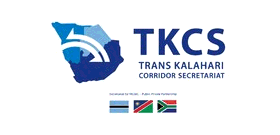 Trans-Kalahari Railway: Botswana and Namibia Advance Plans for a Game-Changing Regional Corridor
Trans-Kalahari Railway: Botswana and Namibia Advance Plans for a Game-Changing Regional Corridor
Botswana and Namibia are forging ahead with their ambitious vision to build the Trans-Kalahari Railway (TKR), a project set to transform regional logistics, trade, and economic development across Southern Africa. The railway, which will span an estimated 1,500 kilometres linking Botswana’s rich coal fields with Namibia’s deep-water Port of Walvis Bay, is being positioned by both governments as a catalyst for integrated markets and sustainable growth throughout the region.
The latest progress was showcased during the recent Joint Ministerial Committee meeting in Maun, Botswana, where Minister of Transport and Public Works, Noah Salakae, underlined the TKR’s strategic significance. Stakeholders gathered to review the project’s status, receiving updates from CPCS Transcom Limited, the project’s main consultant. With the critical inception report already approved by both governments, the project is moving from planning to more concrete phases of execution.
Minister Salakae addressed the environmental headwinds facing coal as a commodity and called for innovative financing models that blend public and private sector capital with development funding. He made it clear that the TKR is envisioned not merely as a transport solution, but as a transformative development project. Plans include spurring the creation of new towns, industrial zones, agricultural hubs, and even the flagship Kalahari City—a multi-billion-dollar smart city slated for Botswana’s Kalahari Desert. This corridor, Salakae noted, could ultimately sustain 230,000 people, delivering broad-based benefits far beyond transport alone.
Attracting investment will require regulatory reforms and openness to competition. Salakae stressed the need for both countries to deregulate, separate infrastructure management from train operations, and provide open access for qualified operators. These measures are expected to boost investor confidence, drive efficiency, and position the TKR as a modern, investor-friendly logistics corridor. He also addressed the current challenges facing Botswana Railways, urging swift solutions to strengthen the sector’s credibility and appeal to investors.
Salakae urged that the TKR’s feasibility study consider not just technical and cargo factors, but also the natural synergies with the existing Trans-Kalahari Corridor (TKC)—a vital road network linking South Africa, Botswana, and Namibia. By aligning the TKR and TKC, both nations aim to create an integrated, multimodal network combining rail, road, and border infrastructure. Such a platform will offer investors and businesses a seamless logistics solution for accessing global markets.
Recognizing that feasibility studies may not always yield immediately attractive figures for traditional financiers, Salakae encouraged technocrats to “think outside the box” and pursue creative partnership models. “If feasibility figures do not immediately convince financiers, Botswana and Namibia must innovate and adapt, building partnerships to realise the project,” he asserted, calling for a pragmatic approach to ensure the TKR’s eventual success.
Namibia’s Minister of Works and Transport, Veikko Nekundi, echoed these sentiments, describing the TKR as more than just a railway—it is a “strategic instrument to unlock regional trade, create jobs, and stimulate investment in Namibia, Botswana, and beyond.” Nekundi expressed satisfaction with progress on the feasibility study and stressed the importance of maintaining momentum as the project enters its next phase: securing private sector participation, finalizing financial models, and readying the regulatory and operational environment.
Both governments are committed to advancing the TKR through a transparent public-private partnership model, ensuring value and shared benefits for stakeholders in both countries. Nekundi reaffirmed Namibia’s resolve to see the project through, highlighting its potential to drive regional integration and economic transformation.
For Africa’s travel, logistics, and investment sectors, the Trans-Kalahari Railway represents a bold step toward modern, interconnected infrastructure that supports diversified economies and new commercial opportunities. As Botswana and Namibia move closer to breaking ground, their collaborative approach and openness to innovative financing and regulation could set a blueprint for future megaprojects across the continent.
For professionals across transport, tourism, trade, and investment, the TKR is a signal that Southern Africa is ready to embrace the next chapter of regional integration—one that leverages infrastructure as the backbone for growth, connectivity, and prosperity.
